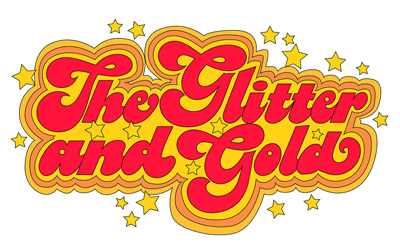Forget cryptocurrency and NFTs. Classic song catalogs are becoming blue-chip investments. A fact Paul McCartney has known this since 1970
Classic songs are big business
In May Variety reported the Red Hot Chili Peppers had sold the publishing rights to their song catalog for over $140 million (US). The buyer was song management company Hipgnosis. Under the leadership of founder Merck Mercuriadis, the $2.2 billion company has spent the past three years buying whole or partial ownership of more than 64,500 songs.
Of these more than 10,000 have been Top 10 US hits. Around 3,000 of them made their way to number one. Many of these songs have been acquired in the last year, with the company purchasing 84 song catalogs for a combined $1.6 billion in the last 12 months. Hipgnosis currently owns the rights to songs made famous by Blondie, Rick James, 10cc, 50 Cent, Stevie Winwood, Lorde, and Taylor Swift.

Recorded music made $21.6 billion in 2020
While the world is in crisis the music business is booming. Digital streaming, now the lifeblood of the industry, is generating astounding profits. In 2020 alone recorded music generated some $21.6 billion (US) in revenue.
In light of the money music is generating in the streaming era, Hipgnosis’s premise is a simple one. Classic songs, they claim, are a valuable and reliable source of generating income. What is more, they will continue to be so for many years to come.
In this sense, they are seen as blue-chip investments. The term “blue chip investment” refers to stock in a long-established and well-financed company. They are low-risk and sound investments. ‘Blue chip companies’ are known for slow but stable growth in earnings and dividends. These companies hold themselves out as being superior market operators, offering quality and long-term earning potential to potential investors.

Paul McCartney has been buying song catalogs since 1970
In 1969, shortly before he would quit The Beatles, Paul McCartney founded McCartney Productions Limited Communications. He did so on the advice of his father and brother-in-law Lee and John Eastman McCartney. The pair were entertainment lawyers who became part of McCartney’s family after his marriage to rock photographer Linda McCartney that same year.
Lee and John were savvy New York businessmen. They wanted McCartney to invest the money flowing in from his Beatles residuals. McCartney, who had grown up in the working-class city of Liverpool, was wary. He simply viewed money as something you put in the bank.
Lee and John had one investment that would change his mind. Through their professional contacts, they had become aware American music publisher Edwin H. Morris was placing their large catalog of classic songs up for sale. Amongst these songs were many of the rock ‘n’ roll singles that had originally inspired the Beatles, including material from Buddy Holly. The collection also contained songs such as Carl Perkins ‘Honey Don’t’, which McCartney and his bandmates famously covered on Beatles For Sale.
The Beatles were swindled out of their own songs
The idea instantly appealed to McCartney. Who along with John Lennon had famously signed away the ownership rights to the first 60 of The Beatles’ songs to Northen Songs in 1964. McCartney would later be outbid for these rights by Micheal Jackson in 1985 before He later struck a secret deal with publisher Sony ATV to reclaim them in 2017. “John and I felt screwed out of our rightful recompense,” Paul McCartney informed Billboard in 2019. “When I had the opportunity to have another publishing company so cleanly, this was great.”
Over a number of years, McCartney acquired the Edwin H. Morris catalog in several large transactions. By the time the deal was completed, McCartney had come into the possession of 450 songs. These deals are reported to have cost $15 million.
From 1970 onward McCartney continued to acquire songs he liked and believed to be slow but steady sellers. By 1979 MPL Communications was estimated as being worth between $80 and $120 million. Today MPL has rights to more than 25,000 songs. Alongside McCartney’s solo material, standards such as ‘Stormy Weather’, several well-known Christmas songs, and even the music from Grease can all be counted within the company’s sizeable collection.

What Paul McCartney can teach us
Much like Hipgnosis, McCartney used a large amount of the money to purchase songs considered to be classics in bulk. The former Beatle’s path to learning the value of songs was a painful one. Fortunately, he learned from his mistakes. His bad business deal with Northern Songs was a difficult step toward his eventual music publishing success.
There are two key takeaways from McCartney’s journey. The first is that songs make money. Forget Cryptocurrency and NFTs. Music is an investment that sits closer to the heart. And, as McCartney’s 50-year venture can attest, it pays off. In 2021 the former Beatle enjoys what is estimated to be a $1.2 billion fortune.
And, if the ethics of owning another’s art strikes you as a little too shady -“Music is everybody’s possession,” John Lennon after all proclaimed, “it’s only publishers who think that people own it!” – the second lesson to be learned here is that you can make money by following your passion and doing something that you love. If McCartney’s example is one to follow, you may even bring joy to a few million others in the process.








